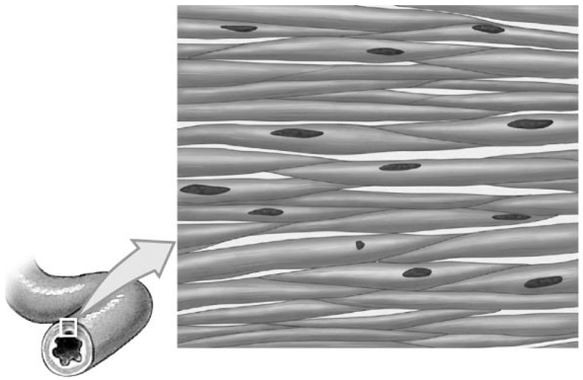If the arterial blood pressure in the brain is suddenly decreased, the flow through arterioles in the brain will immediately fall and then which of these will occur next?
A. Brain arterioles will constrict to accelerate blood flow through the brain capillaries.
B. Brain arterioles will dilate due to a decrease in levels of CO2.
C. Blood flow will rise to levels above normal due to excess O2 levels.
D. Blood flow will remain at the new, lower level due to reactive hyperemia.
E. Blood flow will return toward its original level due to flow autoregulation.
Answer: E
You might also like to view...
The phase of the menstrual cycle that directly precedes ovulation is called ________.
A. the secretory phase B. the proliferative phase C. menses D. menarche
How could this tissue be described?

A) It is the outer protective tissue over the organ.
B) This tissue is for compression, which moves food through the organ.
C) This tissue conducts electrical impulses.
D) This tissue is multinucleated.
E) This tissue produces a material that lubricates food.
Which exocrine glands are in the integument?
A) Sweat glands and salivary glands B) Mammary glands and salivary glands C) Sweat glands and sebaceous glands D) Mucous glands and sebaceous glands E) Mucous glands and sweat glands
What type of epithelial tissue is found in the urinary bladder?
A. stratified squamous epithelium B. pseudostratified ciliated columnar epithelium C. simple columnar epithelium D. transitional epithelium E. simple cuboidal epithelium